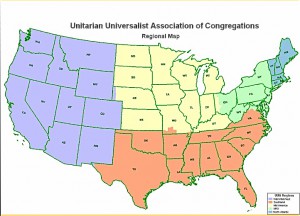Carol and I have finally been reading The Tipping Point by Malcolm Gladwell, the 2000 bestseller that gave a popular account of some scientific research in epidemiology, psychology, and sociology. Like Dr. Johnson, neither one of us has wanted to read the whole book all the way through*, so it lives in the bathroom, and we read bits of it when we’re not looking through the catalogs and magazines that also live there.
But while I haven’t actually read the book, I have been reading the end notes, which are really more informative than the book. In these endnotes I finally came across a reference I have wanted for some time: a reference to the scientific work that helps explain why human organizations with less than about 150 members are qualitatively different than human organizations with more than 150 members. The reference is: Robin I. M. Dunbar, “Neocortex size as a constraint on group size in primates,” Journal of Human Evolution, 1992, vol. 20, pp. 469-493.
And why should we care about the size of primate neocortexes? The neocortex is the part of the brain through which primates keep track of relationships; the larger the neocortex, the more relationships a given species of primate can keep track of; thus the large size of the Homo sapiens neocortex allows us humans to keep track of all the relationships in a group of up to about 150 members. When, however, human organizations are larger than 150 members, individuals can no longer keep track of all the relationships, and the group therefore feels qualitatively different.
This helps explain why congregations often stop growing when their active membership (measured as the average weekly attendance of adults and children) becomes larger than 150. My guess is that because our neocortex can’t handle any more relationships within that group, we literally cannot relate to any newcomers who may arrive. And if the newcomers can’t make connections with the other primates in the congregation, they’re not going to stick around — we primates are social critters who want to make connections with others of our species. This also helps explain why something like three-quarters of all U.S. congregations have an average attendance of fewer than 200 adults and children — we’re just more comfortable in groups with 150 or fewer humans.
Whether a congregation is growing or not may thus have less to do with the attractiveness of the congregation’s theology than with the neocortex size of the primates who make up that congregation.
* “Johnson, offended at being thus pressed, and so obliged to own his cursory mode of reading, answered tartly, ‘No, Sir, do you read books through?’” — Boswell, Life of Johnson, Monday 19 April 1773.


